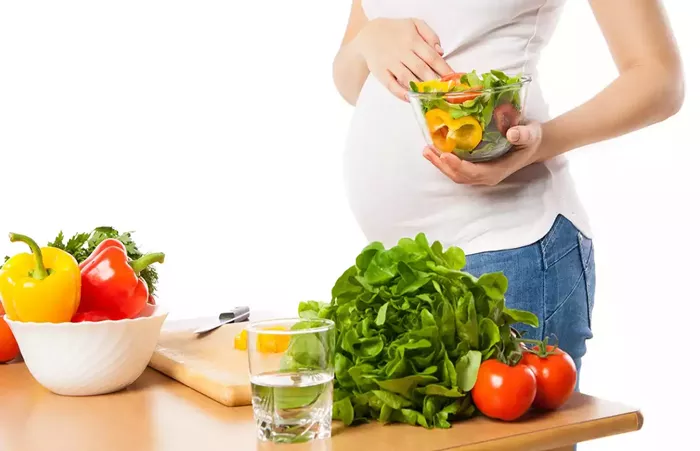Pregnancy is a time of excitement and anticipation. However, it also brings new responsibilities, especially regarding food safety. One of the serious concerns during pregnancy is listeriosis, an infection caused by the bacteria Listeria monocytogenes. This bacteria can lead to severe complications for both the mother and the developing baby. Understanding which foods can harbor this bacteria is crucial for expectant mothers. In this article, we will explore the foods that are most commonly associated with listeria contamination, providing essential information to help you make safe dietary choices during pregnancy.
What is Listeria?
Listeria monocytogenes is a type of bacteria found in soil, water, and some animals. It can also be present in certain foods. Unlike many other bacteria, listeria can grow at refrigerator temperatures. This characteristic makes it particularly dangerous for pregnant women, as the risk of infection increases even with food that appears safe. Listeriosis can cause flu-like symptoms and, in severe cases, lead to miscarriage, stillbirth, or severe illness in newborns.
Why Are Pregnant Women at Higher Risk?
Pregnant women are at a higher risk for listeriosis due to several factors:
Weakened Immune System: Pregnancy naturally weakens the immune system to support the developing fetus. This makes it easier for infections to take hold.
Hormonal Changes: Hormonal fluctuations can affect the body’s response to infections.
Changes in Digestive System: Pregnancy can slow down the digestive system, increasing the time food spends in the intestines and giving bacteria more time to grow.
Common Foods That Can Cause Listeria in Pregnancy
Certain foods are more likely to harbor listeria. Understanding these foods can help pregnant women make safer dietary choices.
1. Deli Meats and Hot Dogs
Deli meats, including turkey, ham, and roast beef, are common sources of listeria. These meats can be contaminated during processing or handling. Hot dogs are also at risk, particularly if they are not heated properly.
Prevention Tip: Heat deli meats and hot dogs to steaming hot before consuming them. This can kill any potential listeria present.
2. Soft Cheeses
Soft cheeses, particularly those made from unpasteurized milk, are a significant risk factor. Cheeses such as feta, Brie, Camembert, and blue cheese are known to harbor listeria. Even some pasteurized soft cheeses can become contaminated after processing.
Prevention Tip: Choose hard cheeses or pasteurized soft cheeses. Always check labels for pasteurization.
3. Unpasteurized Milk and Dairy Products
Unpasteurized milk and products made from it are major sources of listeria. These products may include certain yogurts and creams that have not undergone pasteurization, which kills harmful bacteria.
Prevention Tip: Always opt for pasteurized milk and dairy products. Read labels carefully.
4. Raw or Undercooked Seafood
Raw seafood, including sushi and oysters, can contain listeria. Even cooked seafood can become contaminated if it is handled improperly after cooking.
Prevention Tip: Avoid raw seafood entirely during pregnancy. Ensure that all seafood is cooked thoroughly.
5. Raw Vegetables and Fruits
Fruits and vegetables can become contaminated with listeria through contact with soil, water, or handling. Pre-packaged salads and ready-to-eat fruits are also at risk.
Prevention Tip: Wash all fruits and vegetables thoroughly under running water. Peel and cook vegetables when possible.
6. Refrigerated Pâtés and Meat Spreads
Refrigerated pâtés and meat spreads can harbor listeria. Even those made from cooked meats can be at risk if not handled properly.
Prevention Tip: Avoid refrigerated pâtés. Opt for shelf-stable products instead.
7. Ready-to-Eat Foods
Certain ready-to-eat foods, such as pre-packaged salads, sandwiches, and cheese plates, can contain listeria. These foods may not require further cooking, which increases the risk of contamination.
Prevention Tip: Avoid ready-to-eat foods that have not been heated or prepared in a safe environment. Always choose freshly made meals when possible.
SEE ALSO: When to Start Kegel Exercises in Pregnancy?
How to Reduce the Risk of Listeria Infection During Pregnancy
Here are several practical steps that pregnant women can take to minimize the risk of listeria infection:
1. Practice Safe Food Handling
Safe food handling practices are crucial in preventing listeria contamination. Always wash hands, utensils, and surfaces before and after handling food.
2. Keep Refrigerators Cold
Set your refrigerator to 40°F (4°C) or below. This helps slow down the growth of listeria and other bacteria.
3. Check Expiration Dates
Always check expiration dates on packaged foods. Do not consume products that are past their expiration date.
4. Avoid Certain Foods
Be cautious and avoid foods that are known to be high-risk, such as those mentioned earlier.
5. Heat Food Thoroughly
When reheating food, ensure it is steaming hot. Use a food thermometer to check temperatures when necessary.
6. Store Food Properly
Store leftovers in airtight containers and consume them within a few days. Always keep raw meat separate from other foods in the refrigerator.
Symptoms of Listeriosis
Recognizing the symptoms of listeriosis is crucial for prompt medical attention. Common symptoms include:
Fever
Muscle aches
Nausea
Diarrhea
In severe cases, symptoms may progress to headache, stiff neck, confusion, loss of balance, or convulsions. Pregnant women may experience flu-like symptoms, which can be mistaken for normal pregnancy discomforts. If you suspect listeriosis, it is essential to contact a healthcare provider immediately.
What to Do If You Suspect Listeriosis
If you experience symptoms associated with listeriosis, take the following steps:
Contact Your Healthcare Provider: Inform them of your symptoms and any foods you may have consumed that could be risky.
Seek Medical Attention: If symptoms are severe, such as high fever or neurological symptoms, seek emergency care.
Get Tested: Your healthcare provider may recommend testing to confirm listeriosis.
Conclusion
Understanding which foods can cause listeria during pregnancy is vital for protecting both mother and baby. By being aware of high-risk foods and practicing safe food handling techniques, expectant mothers can significantly reduce their risk of listeriosis. Remember, maintaining a balanced diet is essential, but food safety is equally important. Stay informed and make choices that support your health and the health of your growing baby.
You Might Be Interested In


